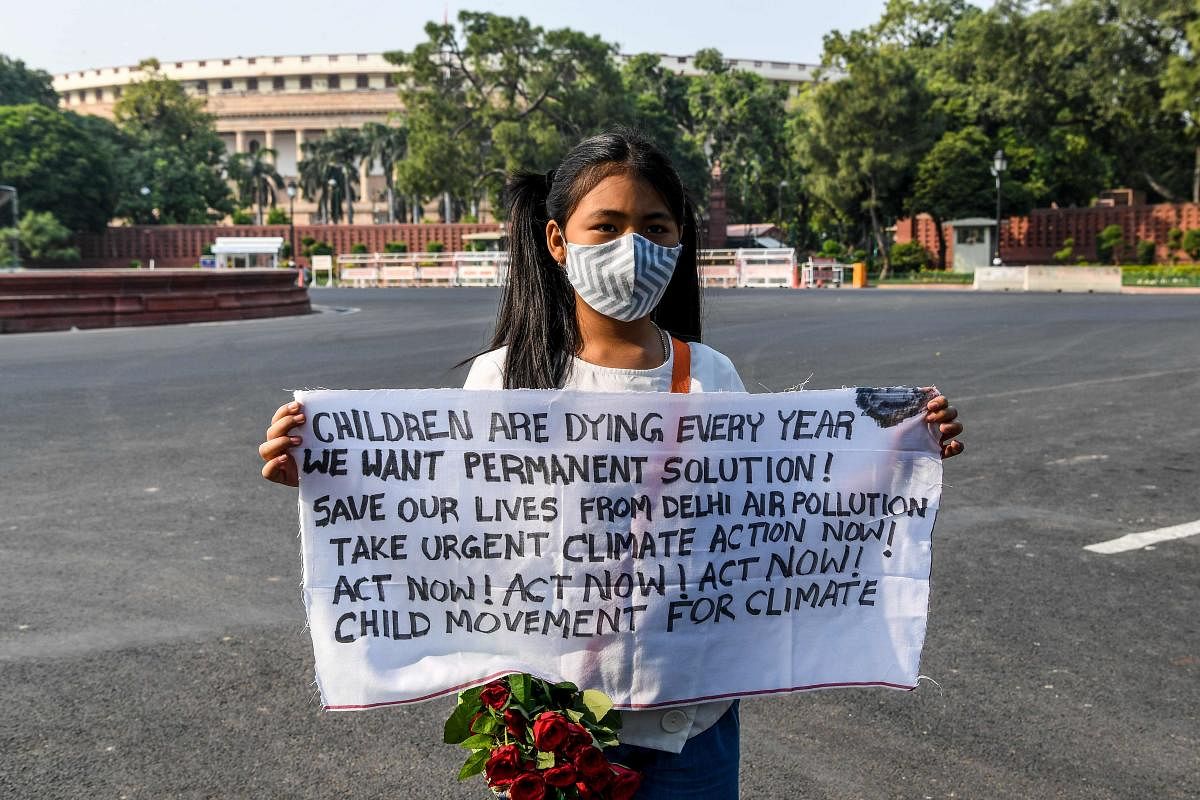
Nine-year-old, Manipuri activist, Licypriya Kangujam was detained by the police and ordered not to peacefully protest outside the Indian Parliament about air pollution in Delhi. Social media users were aghast and shocked at how officials treated the girl for spreading awareness and helping Delhi improve its air quality.
What is climate change literacy and what can we learn from the coronavirus pandemic? Climate change literacy is a term with layers of meaning to it.
This is about being aware of how one’s actions contribute to climate change and its consequences. This would include making an effort to shift to sustainable practices and greener solutions. Climate change literacy is more than just knowing that the earth is in danger. Rather, it is about connecting with the issue on a personal and political level and acting on it. In order to take action at a community or global level, we need to know the causes and problems of climate change.
Since the outbreak of coronavirus, people have started to understand the connection between planetary health and their well-being.
Though strict measures were taken by countries to prevent the spread of the virus, like sealing boundaries, the total number of cases has risen alarmingly. The virus did not differentiate between human-made borders. Similarly, the impacts of national-level decisions that degrade the environment may be transboundary, so we must consider how we can persuade policy-makers to implement necessary measures.
Samantha Montano, a professor of energy management and disaster, argues the need to be proactive. She believes that the coronavirus outbreak will initiate some policy changes. After fighting a pandemic and learning how difficult it is to implement laws, we must be prepared for climate-related disasters.
Urban populations are especially susceptible to the virus, because of higher population density and overcrowding. The lack of open spaces has allowed the virus to thrive; in the case of vast, open lands, the virus would die without a host to attach to.
Likewise, the environmental impact of climate change events is severe in many urban areas. For example, flooding is more likely in urban areas where there is no place for water to flow and collect.
Eric Holthaus, a British meteorologist, claims that Kerala’s efficient response to the virus outbreak outperforms the delayed, laid-back approach of certain well-developed countries that misunderstood the potential of the virus. We can draw upon policy-lessons from Kerala’s community-based approach in dealing with Covid-19, where all socio-economic groups were taken care of when the lockdown was imposed. The rest of India witnessed massive migration because policy-measures were short-sighted. While health was prioritised over the economy, the weaker sections of the society were worst affected by the restrictive measures. The lesson here to draw for climate change literacy is that extreme events cannot be underestimated or treated with short-sightedness. To prevent or mitigate such events, every section in the community needs to be involved.
The peculiar nature of the coronavirus shows that the outcome of any lockdown can be seen only if all the citizens strictly abide by it.
Much like climate change mitigation, a slow and continuous process that requires everybody’s participation, the situation won’t get better overnight. If staying home helps to reduce the number of infections in the community, shifting towards sustainable practices will contribute to mitigating climate change. To build on this momentum, activists suggest a “degrowth” in developed countries where people are encouraged to reduce their usage and consumption of resources even if it slows down the nation’s economic growth.
Many climate change activists are talking about these connections now, amplifying the urgency of the issue. Their voices on social media and online platforms have reached a large audience, greatly increasing climate change literacy.
However, fake news or misleading ideas are also being circulated, making people question what they already know.
As a stepping-stone to climate change literacy, we must learn to trust only well-known sites, voices from activists and experts in this field. We must question our experiences to weigh what is best for the planet.